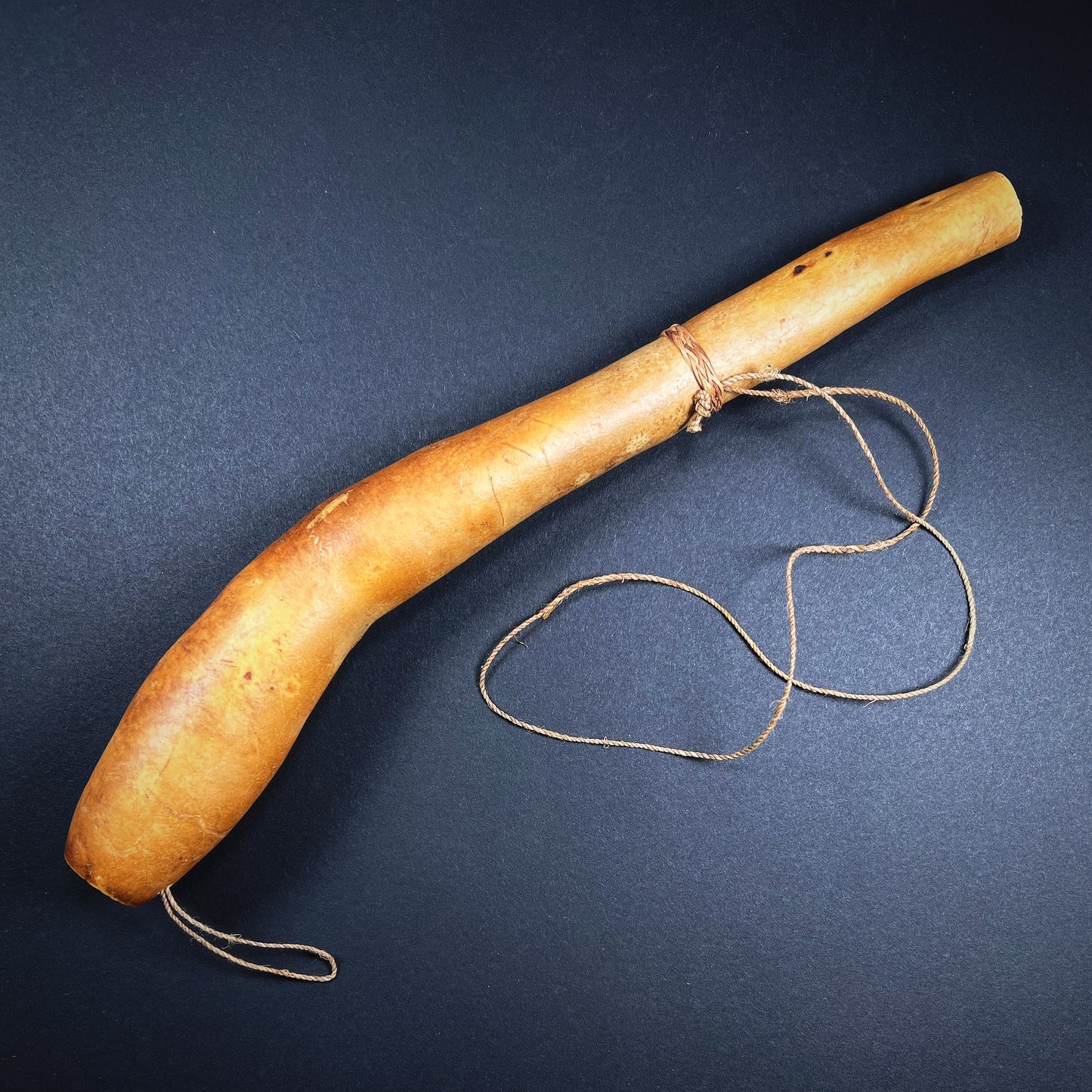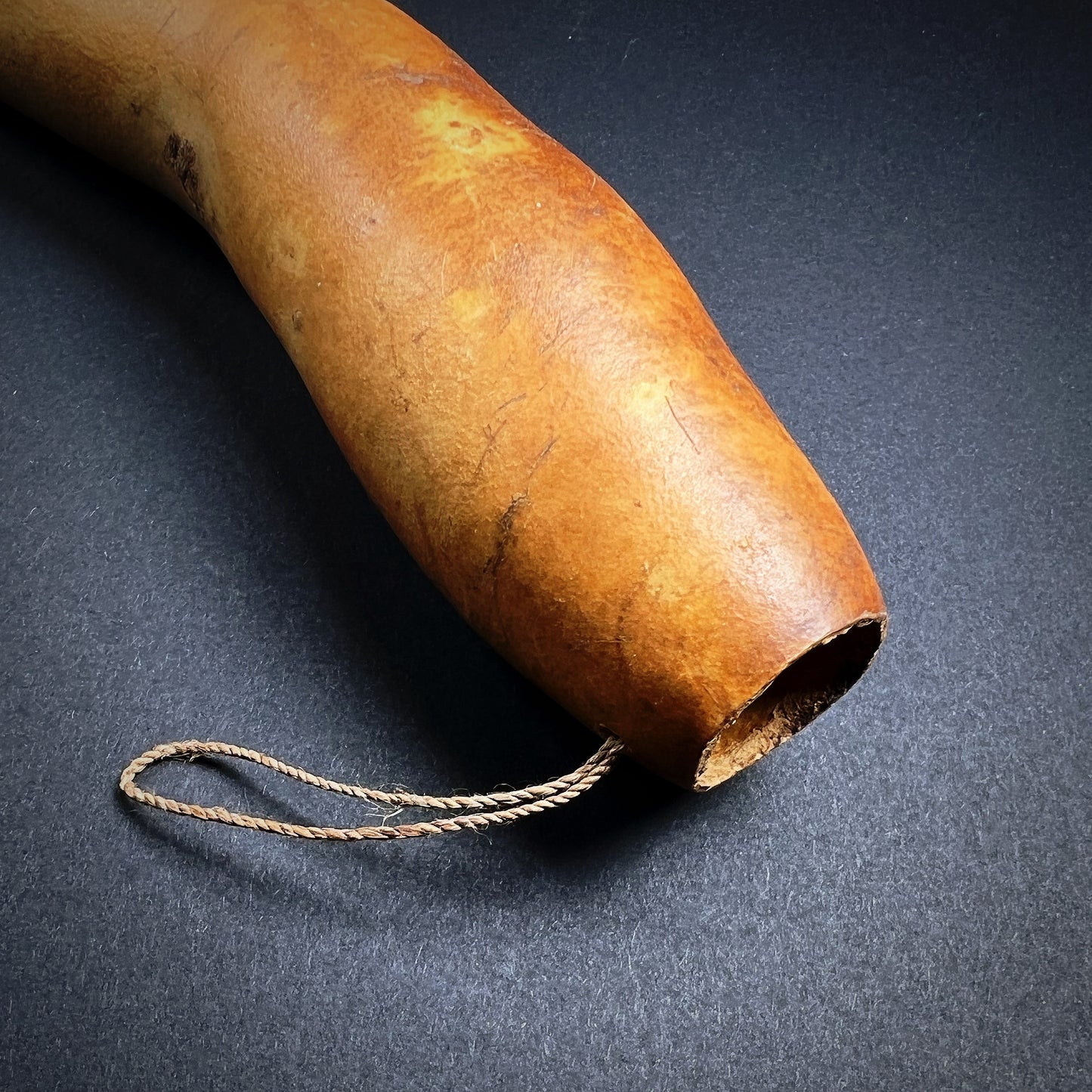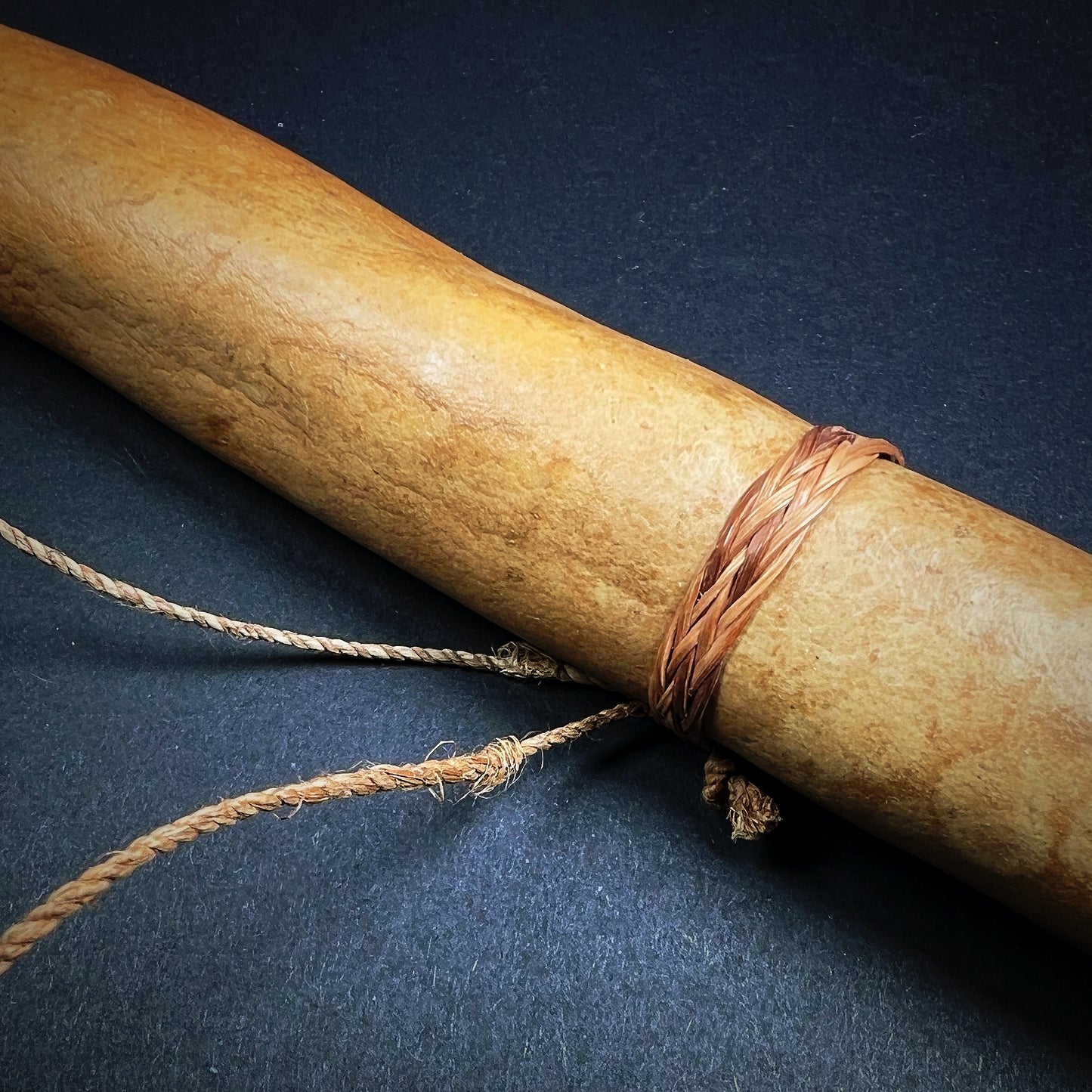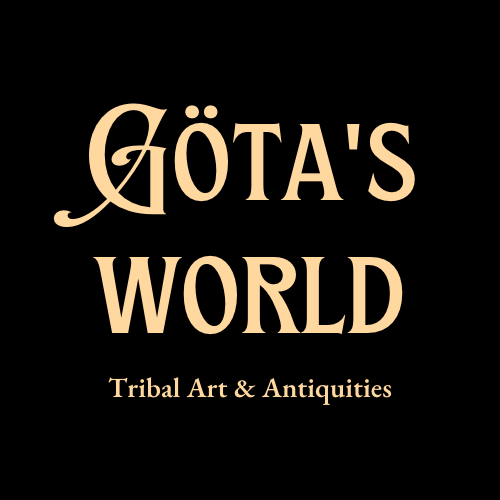Dani Penis Gourd Sheath (Koteka)
Dani Penis Gourd Sheath (Koteka)
Couldn't load pickup availability
Dani people, mid-20th century, Baliem Valley, Irian Jaya (Papua), Indonesia
A superb, aged example of the traditional Dani penis sheath, koteka (also horim), carved from a naturally dried, undecorated gourd (Lagenaria siceraria). A fibre cord is attached for securing the sheath around the loins. The koteka is held in place by a small fibre loop affixed near its base, which is placed around the scrotum. This functional yet culturally significant adornment has long been worn by the indigenous men of the western Papuan highlands to cover and protect the penis.
Koteka vary in size and purpose: shorter gourds were typically used during daily labour, while longer and more elaborate versions were reserved for ceremonies and festive occasions. Decoration varies by region and tribe; while many koteka are plain and utilitarian, others may be adorned with paint, feathers, cowrie shells, or added fibre elements to signal identity, status, or affiliation.
The Dani inhabit the central highlands of Western New Guinea and are among the most populous groups in the region, closely related to the Yali, Moni, and Lani peoples. First contacted by Westerners in the late 1930s, the Dani saw the establishment of the first Dutch colonial post in the remote Baliem Valley in the mid-1950s.
Before outside contact, Dani society was based on agriculture, hunting, and gathering. Their spiritual worldview was animist, centred on land and water spirits and especially on the potentially dangerous ghosts of the recently deceased. The Dani believe in a vital soul-substance known as “seeds of singing” (edai-egen), perceived as throbbing beneath the sternum. Sickness or injury causes this essence to retreat toward the spine, requiring heat and ritual curing to restore it. At death, it becomes a ghost (mogat) that must be ritually guided into the forest so as not to harm the living.
Until the 1960s, before the introduction of metal tools, Dani implements were fashioned from stone, bone, pig tusk, wood, and bamboo—stone being used for axes (kapak) and adzes. Without pottery, the Dani relied on gourds for water containers. Traditional dress consisted solely of the koteka for men—sometimes enhanced with bird-of-paradise feathers, cowrie shells, pig tusks, or a woven hair net—while women wore grass skirts (sili) before marriage and fibre-coil or seed-strand skirts (yokal) afterward.
Dani craftsmanship encompasses finely woven rattan bracelets (sekan), arm and headbands (milak), necklaces made from cowrie shells, feathers, and bone (mikak), and head ornaments incorporating pig tusks (suale). Wealth objects among the Western Dani included polished oblong stones (ye), slabs of salt, and the iconic hand-knotted tree-bark fibre carrying bags known as noken or bilum.
This beautifully preserved koteka stands as a compelling example of traditional Papuan material culture—both utilitarian and deeply emblematic of identity, manhood, and social life among the Dani.
Good condition. Age-related wear and signs of use. Size approx. 28,0cm x 4,0cm x 4,0cm.
References and further reading:
Encyclopedia of World Cultures, Oceania, Karl Heider, edited Terence Hays, G.K.Hall & Company, 1991.
Wealth Items in the Western Highlands of West Papua, Anton Ploeg, Ethnology, Vol.43. No.4 (Autumn 2004), pp. 291-313.
Clothing or Decoration: Exploring the Penis Sheath of Papua New Guinea, Catherine Murphy, Textile Society of America Symposium Proceedings. 717, 2012.(https://digitalcommons.unl.edu/cgi/viewcontent.cgi?article=1716&context=tsaconf)
Papua blood: An account of West Papua, Peter Bang, BoD, 16 Apr 2018.



-
Shipping
The shipment will be prepared in the course of 3-5 days and dispatched via Posti Group Oyj or purchased item(s) can be picked up from our shop during the store's opening hours (Tarkk’ampujankatu 4, 00140, Helsinki, Finland). Within the Finland, all items are shipped via Posti Group Oyj unless otherwise requested. We pack the items carefully and mainly in recycled materials because we want to save nature. You will receive the tracking number for your items by e-mail.
-
Returns
Returns and exchange will be accepted within fourteen days (14) of receipt at the purchaser’s cost to include freight and packaging. Items must be returned in the same condition as when they were shipped, and will not be accepted if damaged or altered in any way. Please inform us via email (info@gotanmaailma.fi) or by calling +358408408352 before sending. We do not accept returns more than 14 days after delivery.



